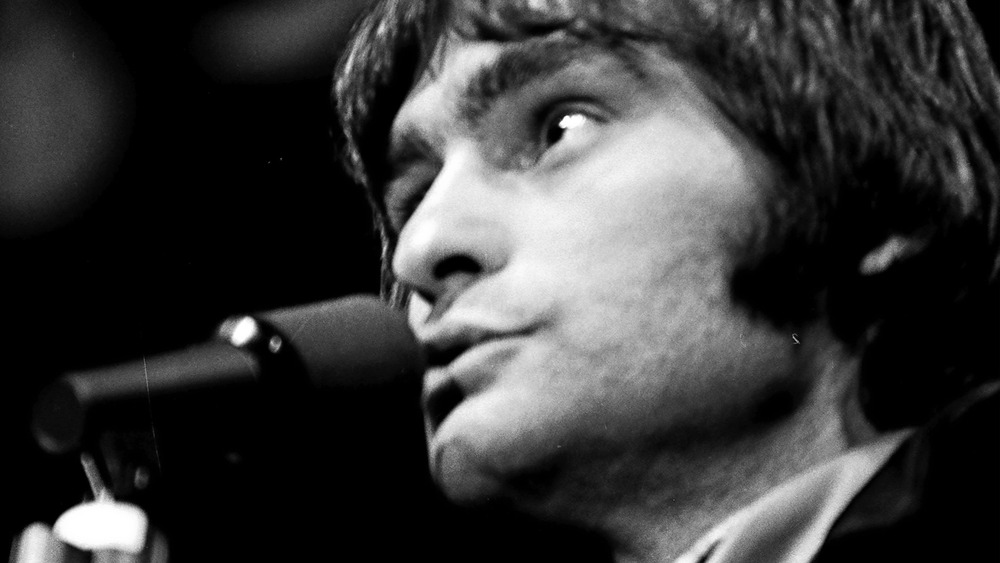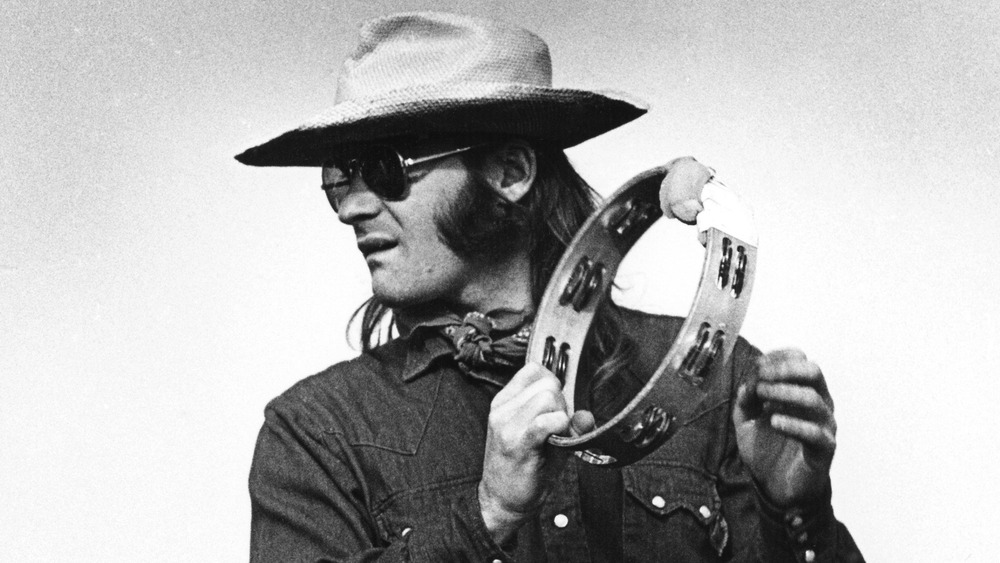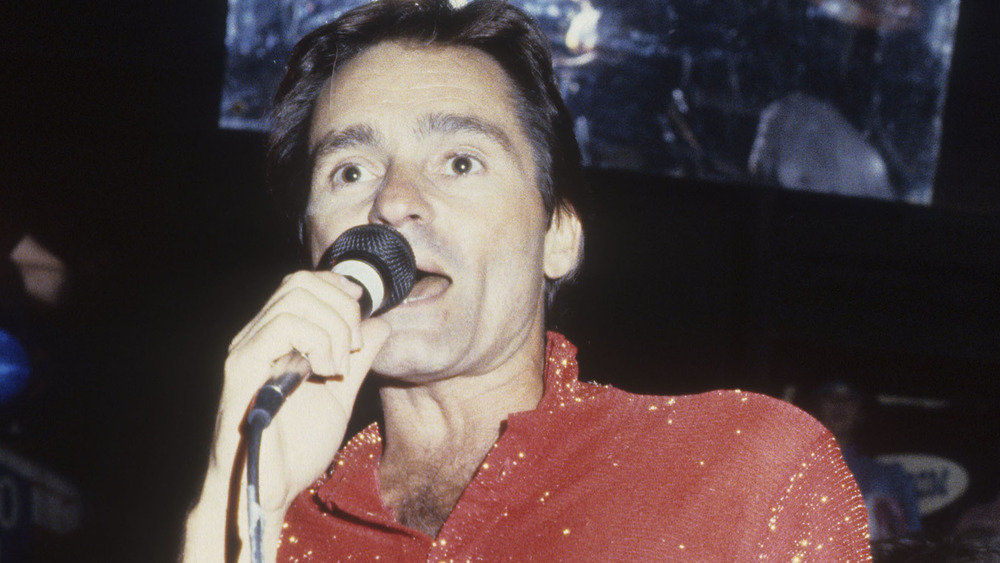What You Didn't Know About Marty Balin
If you're a classic rock fan, you probably recognize Marty Balin as the lead male vocalist and co-founder of Jefferson Airplane/Jefferson Starship. While Grace Slick was the voice behind classics such as "Somebody to Love" and "White Rabbit," it was Balin's distinctive tenor that could be heard clearly on songs like "Volunteers," "Miracles," and "Count on Me." He did, however, leave and rejoin the band multiple times while also enjoying a rather successful solo career that saw him crack No. 8 on the Billboard Hot 100 in 1981 with the single "Hearts."
Sadly, Balin is no longer with us, having passed away on September 27, 2018, at the age of 76, as reported by Variety. Not only did he leave behind a legacy of classic songs, he was also arguably a highly overlooked musician who didn't get as much attention as he should have as one of his era's premier vocalists and songwriters. There are also several things about him that even longtime fans might not know, and we shall be diving deeper into some of them.
Marty Balin had a solo career before Jefferson Airplane
The man who was born on January 30, 1942, as Martyn Jerel Buchwald officially became Marty Balin in the early 1960s — a few years before he formed Jefferson Airplane — when he kicked off his career as a professional musician, as noted by Yahoo. Armed with a new surname and loads of untapped talent, he recorded two singles for Challenge Records in 1962, with the A-sides titled "Nobody But You" and "I Specialize in Love." Neither of those releases panned out for the young musician, who later moved on to the folk-rock scene and formed a short-lived group called the Town Criers.
According to Best Classic Bands, both singles featured the contributions of another future hitmaker in Glen Campbell, who was then playing guitar as part of the group of session players known as The Wrecking Crew. Out of the four sides that were recorded, only "I Specialize in Love" was written by Balin, and the site referred to the song as "a moderately rockin' track featuring a surprisingly confident, typically soulful vocal from Mr. B."
The troubling reason behind Balin's decision to leave Jefferson Airplane in 1971
By the late '60s, Jefferson Airplane was on top of the rock world and had performed at major festivals — the Monterey Pop Festival in 1967 and the original Woodstock in 1969. However, as is the case with many other bands from the era, the Airplane was soon spinning out of control as multiple members dealt with drug problems. Some of their contemporaries also met grim fates in the early '70s, as Jimi Hendrix, Janis Joplin, and Jim Morrison all died at the age of 27 within months of each other.
Speaking to author Jeff Tamarkin for a now-archived article from the Jefferson Airplane website, Balin revealed that it was Joplin's death — and the rampant drug use that was affecting his band — that drove him to leave the Airplane in April 1971. At that point, he was living a healthier lifestyle and had even quit drinking, which made it even harder for him to communicate with his bandmates.
"Cocaine was a big deal in those days, and I wasn't a cokie and I couldn't talk with everybody who had an answer for every godd*mn thing, rationalizing everything that happened," Balin continued. "I thought it made the music really tight and constrictive and ruined it. So after Janis died, I thought, I'm not gonna go onstage and play that kind of music; I don't like cocaine."
Four years later, Balin was back with the renamed Jefferson Starship, and he remained an on-and-off member of the band before quitting a final time in 2008, per Variety.
Marty Balin was diagnosed with autism as a child
As noted by Ongig, there are dozens of famous celebrities who are on the autism spectrum, such as Sir Anthony Hopkins, Darryl Hannah, and Community creator Dan Harmon, to name a few. Several musicians were also mentioned in the company's article, but one notable omission was Marty Balin, who was diagnosed with autism as a child and had to deal with people suggesting that his condition could be a hindrance to his future success.
"I loved music, but my biggest obstacle was people telling me that I did not have what it takes to be a successful musician," Balin told the Common Thread Group's Jerry Gladstone in 2014. "What helps keep me focused is creating a to-do list in my mind. I always need to accomplish things. I like the fact that I deliver. I take pride in delivering what I promise."
Balin also offered some advice to other people on the spectrum who may also be hoping to make their name in entertainment — they shouldn't be afraid to take chances despite their condition. "I always believed in myself," he added. "I love to sing and dance — make a fool of myself. My advice is to be willing to reveal yourself. Put it out there, follow your intuition and stay focused."



